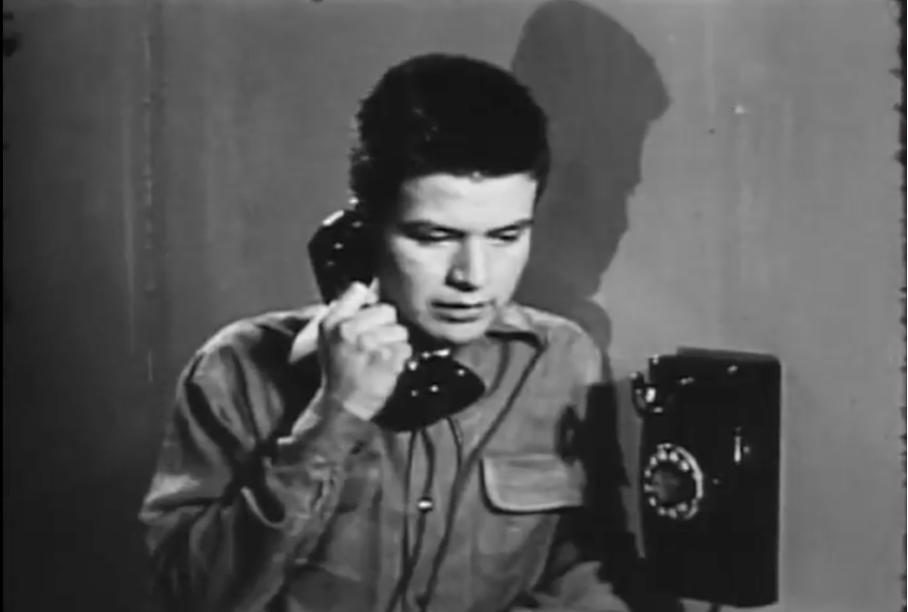During the 1950s in the USA, a large amount of prescriptive material appeared in the form of magazines, handbooks, and guidance films, teaching proper manners and good behavior in a rapidly evolving post-war society. In this context, the U.S. Department of the Interior commissioned two short films produced by the Bureau of Indian Affairs in 1952 aimed at teaching young Native Americans how to properly use a telephone and answer calls.
The political context of the era is key here, as the 1950s represented a kind of pinnacle in the federal government's assimilationist intentions about Native American communities, whether it be the attempt to abolish protected reservation territories or the forced teaching of Anglo-American values in federal residential schools.
This presentation will attempt to show how these short films, which at first seem to resemble the innocuous orientation films of the time in their format and approach, in fact aim not simply at the acquisition of new cultural codes, but at the complete rewriting of the most traditional thought patterns. First, I will look at the historical and political contexts in which these films were made, to understand the intent behind their production. Secondly, I will attempt to analyze their scenography and purpose in the light of ethnographic and anthropological data, as specifically relevant to the Navajo culture, as the students and the examples in the movie are clearly aimed at this community.
The short films analyzed in this seminar session are available here:
Telephone Etiquette
Receiving a Telephone Call
Matthieu CHARLE est PRCE en anglais pour sciences sociales et sciences politiques à l’Université Paris Nanterre. Titulaire d’un doctorat en anthropologie sociale de l’École des hautes études en sciences sociales, il est spécialiste des populations autochtones d’Amérique du Nord. Ses recherches portent sur les relations intergénérationnelles, la transmission des savoirs et les redéfinitions contemporaines de la tradition. Fruit d’un travail de terrain de trois ans en Idaho, il a publié une monographie intitulée Cœur d’Alene, Ethnohistoire d’une communauté indienne d’Amérique du Nord (Éditions Dépaysages, 2019). Parmi ses publications récentes figure un article sur « L’école culturaliste américaine » dans le Dictionnaire Lévi-Strauss dirigé par Jean-Claude Monod (Robert Laffont, 2022).
La séance est organisée en hybride par
Hélène Solot et
Elisabeth Fauquert.
Pour obtenir le lien de connexion, merci de contacter Elisabeth Fauquert (
efauquert@parisnanterre.fr) ou Hélène Solot (
h.solot@parisnanterre.fr).













